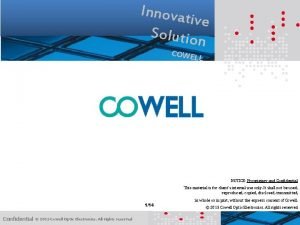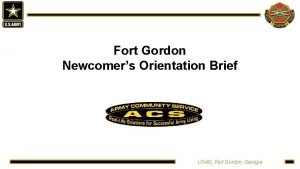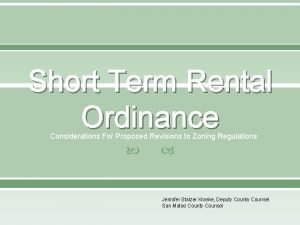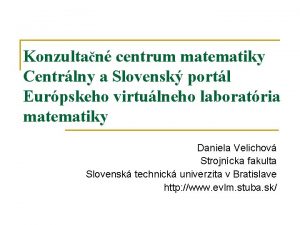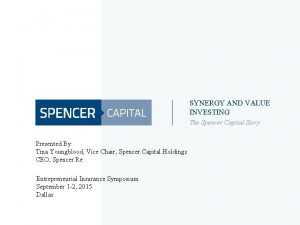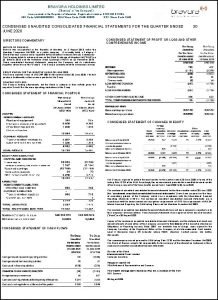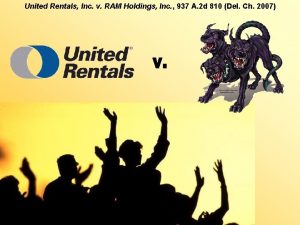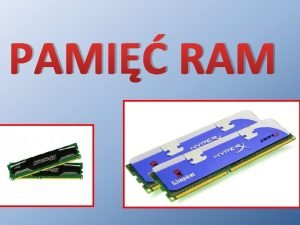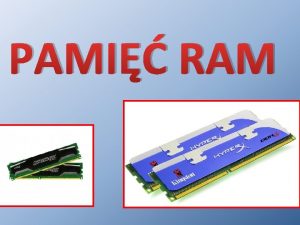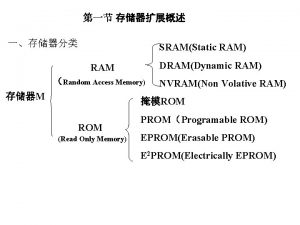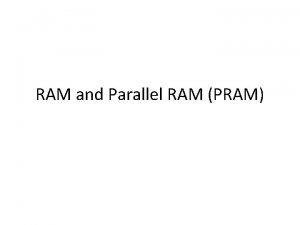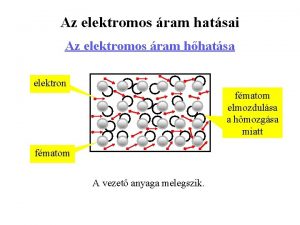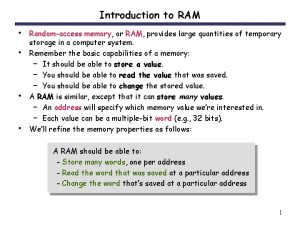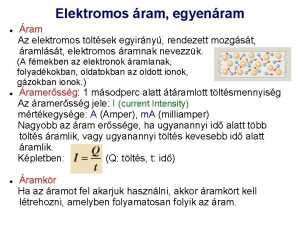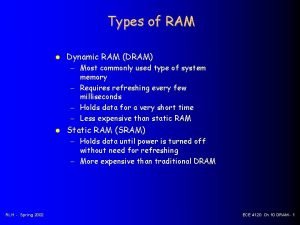United Rentals Inc v RAM Holdings Inc 937










![Section 8. 2(e): Notwithstanding anything to the contrary in this Agreement, … [United Rental’s] Section 8. 2(e): Notwithstanding anything to the contrary in this Agreement, … [United Rental’s]](https://slidetodoc.com/presentation_image_h2/d0af8a423dbc278332220ae33727f64f/image-11.jpg)













![“[W]here an examination of the extrinsic evidence does not lead to an obvious, objectively “[W]here an examination of the extrinsic evidence does not lead to an obvious, objectively](https://slidetodoc.com/presentation_image_h2/d0af8a423dbc278332220ae33727f64f/image-25.jpg)




- Slides: 29

United Rentals, Inc. v. RAM Holdings, Inc. , 937 A. 2 d 810 (Del. Ch. 2007)

UNITED RENTALS, INC. CERBERUS • World’s largest equipment rental company • Major New York private • Ram Acquisition & RAM equity buyout firm Holdings • $3. 6 billion in revenues in 2006 • Over $23. 5 Billion in funds • Nearly 700 rental locations throughout the United States, Canada, and Mexico • Notable acquisitions include: • In mid May 2007, offered itself for sale by circulating draft merger agreement to potential buyers, including Cerberus. Ø Chrysler/Dodge/Jeep Ø Part of Bayer Pharma. Ø GMAC Finance RAM Entities • Shell entities created by Cerberus to facilitate transaction • De minimus assets

Cerberus United Rentals STEP ONE Cerberus creates the “RAM Entities. ” RAM Acquisition is a subsidiary of RAM Holdings RAM Acquisition

Cerberus United Rentals STEP TWO RAM Holdings agrees to purchase all URI stock for $34. 50 per share ($7 B total), most of which would be borrowed money. $7 Billion RAM Acquisition RAM Holdings

Cerberus United Rentals STEP THREE RAM Holdings, however, has no money of its own, so Cerberus agrees to purchase RAM equity for $1. 5 Billion Shares RAM Holdings RAM Acquisition

Cerberus STEP FOUR United Rentals Once it has the money, RAM Holdings pays United Rentals. Once it owns United Rentals, RAM Holdings effects a merger with RAM Acquisition, and United Rentals is the surviving entity and is now a subsidiary. $7 Billion United RAM Acquisition Rentals RAM Holdings

In the fall of 2007, credit markets tightened. Cerberus’s network of lenders may have expressed their frustration with the United Rentals deal. On November 14, 2007, RAM Holdings informed United Rentals by letter that it would not go forward with the transaction. Source: Economist’s View Online

After RAM Holdings declared its breach, United Rentals filed a suit seeking specific performance of the merger agreement in the Court of Chancery. United Rentals filed for Summary Judgment, claiming that it had the only reasonable interpretation of the merger agreement. Court of Chancery Courthouse, Georgetown, DE

At the center of the dispute was the Merger Agreement. United Rentals relied on a provision that promised specific performance in the event of a breach. Cerberus relied on a provision that precluded “equitable remedies” and purported to limit damages to a $100 million termination fee. Cover of the Merger Agreement

Section 9. 10: The parties agree that irreparable damage would occur in the event that any of the provisions of this Agreement were not performed in accordance with their specific terms or were otherwise breached. [United Rentals] shall be entitled to seek an injunction … to prevent breaches of this Agreement by [RAM Holdings] or [RAM Acquisition] or to enforce specifically the terms and provisions of this Agreement … or enforce compliance with those covenants of [RAM Holdings] or [RAM Acquisition] that require [RAM Holdings] or [RAM Acquisition] to (i) use its reasonable best efforts to obtain the Financing … and (ii) consummate the transactions contemplated by this Agreement, if in the case of this clause (ii), the Financing … is available to be drawn down by [RAM Holdings] pursuant to the terms of the applicable agreements but is not so drawn down solely as a result of [RAM Holdings] or [RAM Acquisition] refusing to do so in breach of this Agreement. The provisions of this Section 9. 10 shall be subject in all respects to Section 8. 2(e) hereof, which Section shall govern the rights and obligations of the parties hereto (and of [Cerberus Partners], the Parent Related Parties, and the Company Related Parties) under the circumstances provided therein.
![Section 8 2e Notwithstanding anything to the contrary in this Agreement United Rentals Section 8. 2(e): Notwithstanding anything to the contrary in this Agreement, … [United Rental’s]](https://slidetodoc.com/presentation_image_h2/d0af8a423dbc278332220ae33727f64f/image-11.jpg)
Section 8. 2(e): Notwithstanding anything to the contrary in this Agreement, … [United Rental’s] right to terminate this Agreement in compliance with the provisions of Sections 8. 1(d)(i) and (ii) and its right to receive the Parent Termination Fee … shall … be the sole and exclusive remedy. … In no event, whether or not this Agreement has been terminated pursuant to any provision hereof, shall [RAM Holdings], [RAM Acquisition], [Cerberus Partners] or the Parent Related Parties, either individually or in the aggregate, be subject to any liability in excess of the Parent Termination Fee for any or all losses or damages relating to or arising out of this Agreement or the transactions contemplated by this Agreement, including breaches by [RAM Holdings] or [RAM Acquisition] of any representations, warranties, covenants or agreements contained in this Agreement, and in no event shall the Company seek equitable relief or seek to recover any money damages in excess of such amount from [RAM Holdings], [RAM Acquisition], [Cerberus Partners] or any Parent Related Party or any of their respective Representatives.

Section 9. 10: • Parties agree that breach = irreparable harm. • In event of breach, United Rentals will have right to seek injunction to specifically enforce merger. • This provision is subject to section 8. 2(e) Section 8. 2(e): • This provision trumps others • The parent termination fee is the sole and exclusive remedy • United Rentals may not pursue equitable relief or other money damages in excess of termination fee

Standards for Contract Interpretation “When the provisions in controversy are fairly is susceptible of different interpretations • Summary judgment only appropriate where may have two or more different there are no disputedorfacts. meanings, there is ambiguity. ” Eagle Indus. , Inc. v. De. Vilbiss Health Care, Inc. , 702 A. 2 d 1228, 1232 (Del. 1997). • The meaning of an unambiguous contract is a question of law—not of fact • A contract is unambiguous where there is only one reasonable interpretation. • Thus, a party wins on summary judgment in a contract dispute when it can demonstrate that its interpretation is the only reasonable one. E. Norman Veasey Former Chief Justice Delaware Supreme Court

United Rentals—Argument • Relying on the rule of construction that requires courts to harmonize contract provisions, United Rentals moved for summary judgment C. J. Seitz Connolly Bove Lodge & Hutz LLP Wilmington, DE Richard D. Bernstein Willkie Farr & Gallagher LLP New York, NY • Although United Rentals acknowledged that section 8. 2(e) trumps section 9. 10, it argued that section 8. 2(e) only precluded “equitable remedies” that involved money (like restitution)—not specific performance • To prove this point, United Rentals relied on another canon of construction, noscitur a sociis, which means ambiguous words can be defined by the words around them.

Cerberus—Argument • Cerberus did not move for summary judgment Gregory P. Williams Richards Layton & Finger, P. A. Wilmington, DE • Instead, it decided simply to argue that the contract was ambiguous—susceptible to at least two reasonable readings. • Cerberus argued that section 9. 10 was subservient to section 8. 2(e) and thus must yield. • Moreover, section 8. 2(e) established the “sole and exclusive remedy” of the $100 million termination fee. Michael L. Hirschfeld Milbank, Tweed, Hadley & Mc. Cloy LLP New York, NY

Court’s Ruling • “It is probably unlikely that a single, unambiguous agreement can simultaneously affirm and deny the availability of a specific performance remedy. If there is such an unambiguous contract, it is certainly not the contract at issue in this case. ” 937 A. 2 d at 834. • The Court concluded that both parties had articulated reasonable interpretations of the merger agreement. • Therefore summary judgment was inappropriate. Bench, Court of Chancery Courthouse Georgetown, DE

Report of John C. Coates • Cerberus sought to introduce a report written by Professor Coates. • The report explained that parties in M&A deals commonly “economize on time and costs” by using “terms of art” like “subject to” and “notwithstanding” to “avoid the need to … synthesize every provision of every related agreement that is … in conflict with the provision in question. ” • Essentially, the report was an attempt to excuse the fact that Cerberus could have avoided this entire dispute by striking section 9. 10 from the agreement. John C. Coates John F. Cogan, Jr. Professor of Law and Economics Harvard Law School

Report of John C. Coates • The Court of Chancery does not permit expert testimony consisting of legal opinion. • In the Walt Disney case, the Court excluded impermissible legal opinion of Professor De. Mott of Duke University’s School of Law. • Likewise, in United Rentals, the Court excluded Professor Coates’s report and testimony because, in the guise of discussing “customs and trends, ” it really attempted to tell the Court how to interpret and apply Delaware law. Deborah A. De. Mott David F. Cavers Professor of Law Duke University John C. Coates John F. Cogan, Jr. Professor of Law and Economics Harvard Law School

• The complaint in United Rentals was filed on November 19, 2007. “The Circle, ” Georgetown, DE • The Court issued five separate letter decisions before trial began in late December in Georgetown, DE. • The trial itself lasted two full days and the Court heard opening statements from both sides and testimony from seven witnesses. • Their testimony attempted to explain the shared intent of the parties with respect to the merger agreement.

Stephen A. Feinberg • Mr. Feinberg, the CEO of Cerberus, was the first to take the stand. Stephen A. Feinberg CEO, Cerberus • He testified that Cerberus was willing to put the entire $1. 5 billion equity commitment into a renegotiated transaction and that any price reduction that Cerberus got in a renegotiated deal would go entirely for the benefit of the banks. United Rentals’ Deal Advisors • UBS advised United Rentals on the deal, and two representatives from UBS testified. • Both stated that United Rentals envisioned a deal from which Cerberus could not simply “walk away. ” • But, both admittedly did not read all of the merger agreement

Eric M. Swedenburg • Mr. Swedenburg was a senior associate at Simpson Thacher who negotiated the deal with Cerberus on behalf of United Rentals (he has since been made partner). • Swedenburg drafted an initial version of the contract that called for a guarantee from Cerberus and a right to specific performance. Eric M. Swedenburg Simpson Thacher & Bartlett LLP New York, NY • The “construct” of the deal, he said, was to ensure that Cerberus could not simply walk away. • Swedenburg testified that the parties exchanged numerous drafts of the agreement, and took turns striking and reentering the provisions regarding specific performance and guarantees.

Eric M. Swedenburg • Eventually, the negotiations began to break down over the issue of Cerberus’s exposure if it decided to walk away and whether United Rentals had the ability to force it to perform. Eric M. Swedenburg Simpson Thacher & Bartlett LLP New York, NY • Ultimately, the parties moved past their differences, and witnesses for Cerberus claim that Swedenburg acceded to their requests to limit United Rentals’ remedy to a termination fee. • Swedenburg did not remember doing so, but conceded that “anything is possible. ”

Peter H. Ehrenberg • Mr. Ehrenberg, a partner at Lowenstein Sandler, was senior counsel to and chief negotiator for Cerberus on the United Rentals transaction. • Ehrenberg stated firmly that Cerberus was opposed to providing any sort of guarantee or right to specific performance. • After negotiations stalled in early July, however, Ehrenberg said Cerberus relented and agreed to provide a limited guarantee—but not specific performance. Peter H. Ehrenberg Lowenstein Sandler, P. C. New Jersey • Ehrenberg testified that Swedenburg tried to strike section 8. 2(e)’s prohibition on equitable remedies, but that Ehrenberg insisted it stay in order to protect Cerberus from a specific performance claim.

The Court issued its 68 -page opinion about 48 hours after the trial’s conclusion. The decision explained the Court’s factual findings, provided a more complete rationale for denying summary judgment, and ultimately ruled in favor of Cerberus. Stained Glass Window, Court of Chancery Courthouse, Georgetown, DE Once the Court determined that the contract was ambiguous, it needed to consider extrinsic evidence to find the common intent of the parties. In this case, however, the evidence did not lead clearly to the conclusion that the parties in fact shared a common intent or understanding. Each side seemed to have its own unique understanding of the contract.
![Where an examination of the extrinsic evidence does not lead to an obvious objectively “[W]here an examination of the extrinsic evidence does not lead to an obvious, objectively](https://slidetodoc.com/presentation_image_h2/d0af8a423dbc278332220ae33727f64f/image-25.jpg)
“[W]here an examination of the extrinsic evidence does not lead to an obvious, objectively reasonable conclusion, the Court may apply the forthright negotiator principle. ” 937 A. 2 d at 835. In other words, “in cases where the extrinsic evidence does not lead to a single, commonly held understanding of a contract's meaning, a court may consider the subjective understanding of one party that has been objectively manifested and is known or should be known by the other party. ” Id. at 836.

The principle is based on section 201 of the Restatement (Second) of Contracts. The term “forthright negotiator principle” was originally articulated by then-Chancellor Allen in the 1996 case U. S. West. v. Time Warner. “[I]t is logically impossible for a contracting party, operating in good faith, both to have a subjective interpretation of ambiguous language different from that of her counterparty and to know of her counterparty’s differing interpretation. ” U. S. West, Inc. v. Time Warner, Inc. , C. A. No. 14555, 1996 WL 307445, at *10 (Del. Ch. June 6, 1996). William T. Allen Former Chancellor Delaware Court of Chancery

Although some commentators erroneously claimed that the Court “conjured up” or “created” it, the forthright negotiator principle is well established law. The principle can be traced to the writings of William Paley, an eighteenth century moral philosopher, is espoused by both Williston and Corbin, and has been codified by statute in several states. Even the U. S. Supreme Court has noted that the principle “is hornbook contract law. ” United States v. Stuart, 489 U. S. 353, 368 n. 7 (1989) Samuel Williston Harvard University Arthur L. Corbin Yale University

The efficacy and efficiency of a particular rule can be evaluated by how well it allocates risk. Generally, risk should be allocated to the party best able to avoid the mistake, or, if a mistake cannot be avoided, to the superior risk-bearer. The Hon. Richard A. Posner 7 th Cir. Court of Appeals, University of Chicago Law School The forthright negotiator principle is an economically efficient rule because it properly allocates risk. When one party to a contract expresses its interpretation of an ambiguous provision, and the counterparty knows that it harbors a different interpretation, it is the counterparty alone who can avoid the mistake. Only Cerberus communicated its interpretation of the agreement’s final language, explaining several times how it understood the synthesized contract to work. United Rentals failed to object and failed to offer its own interpretation, and, in so doing, assumed the risk that if the language were indeed ambiguous and if the contract were indeed breached, it would be bound by the interpretation Cerberus had communicated during negotiations.

The United Rentals case is one of many examples of the fallout from the recent economic crisis. Deals that seemed like good ideas in boom times may appear less attractive when credit markets tighten. Moreover, contract drafting in boom times when every deal appeared to be a success may have grown sloppy. Hopefully, the decision will send a strong signal in favor of the rule of contract that will encourage parties to be more careful about the language they use and the things they say during negotiations.
 Round 826 to the nearest ten
Round 826 to the nearest ten 937 000 in scientific notation
937 000 in scientific notation Ram nam me lin hai dekhat sabme ram
Ram nam me lin hai dekhat sabme ram Cowell china
Cowell china Economic issues facing filipino entrepreneurs
Economic issues facing filipino entrepreneurs Knee walker rentals atlanta
Knee walker rentals atlanta Chelan county short term rentals
Chelan county short term rentals Tasc fort gordon
Tasc fort gordon Car rental erp
Car rental erp Rent porsche 911 houston
Rent porsche 911 houston Chelan short term rentals
Chelan short term rentals Short term rentals langley
Short term rentals langley All needz rentals huntsville
All needz rentals huntsville Deck boat rentals near me
Deck boat rentals near me Luxury rentals 178294
Luxury rentals 178294 San mateo short term rentals
San mateo short term rentals Evlm rentals
Evlm rentals Daborn v bath tramways
Daborn v bath tramways Venetian place apartments
Venetian place apartments Indirect and mutual holdings
Indirect and mutual holdings Springerlink books - auto holdings
Springerlink books - auto holdings Ata holdings
Ata holdings Masasinar holdings sdn bhd
Masasinar holdings sdn bhd Sabre holdings
Sabre holdings Enterprise holdings payroll workcenter
Enterprise holdings payroll workcenter Complete holdings group
Complete holdings group Marcelo rouco
Marcelo rouco Spencer capital holdings
Spencer capital holdings Tcg retirement
Tcg retirement Bravura holdings limited
Bravura holdings limited



